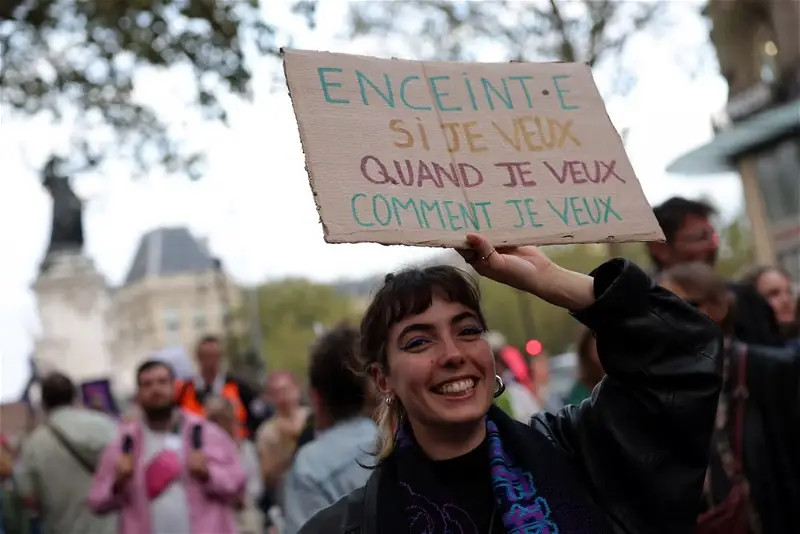Foreign News
France Moves To Enshrine Abortion In Constitution

French lawmakers took a first step Wednesday towards anchoring access to abortion in the French constitution, a controversial project with many hurdles still to clear.
Parliament’s laws committee approved draft language that would offer women a “guaranteed freedom” to end pregnancies — stopping short of a full right to abortion.
The wording reflects a difficult balancing act for President Emmanuel Macron’s minority government, which must assemble a three-fifths majority of members in both the National Assembly lower house and Senate to change the constitution.
The conservative Republicans and far-right National Rally (RN) are especially concerned about the prospective change.
Ministers aimed to provide “Constitutional protection for this freedom, without freezing current legislation nor creating a kind of absolute, unlimited right” to abortion, Justice Minister Eric Dupond-Moretti had told the committee on Tuesday.
The language “must be sufficiently flexible to allow lawmakers to continue their work” and “craft a satisfactory balance, especially in light of technological, medical and scientific developments that could take place,” he added.
Inscribing abortion in the constitution was originally promised by Macron in March last year, in what was seen as a response to the 2022 overturning of federal abortion rights in the United States.
Far-right MP Pascale Bordes complained that the plans were “very far from the concerns” of ordinary people, insisting that abortion in France was “not under threat”.
And Republicans lawmaker Emilie Bonnivard said the party would insist on “the balance… between the right to abortion and the child’s right to be born”, as well as “doctors’ freedom of conscience”.
Left-wing parties the Socialists, Greens and France Unbowed (LFI) would prefer the text to enshrine a “right” rather than a “freedom” to terminate a pregnancy.
But Dupond-Moretti highlighted Tuesday that the State Council, France’s highest administrative court, had found no legal difference between the two wordings.
“We have a very balanced text, it’s now or never,” he said.
The draft text is set for a full parliamentary debate on January 24 before being passed to the right-leaning Senate
AFP























